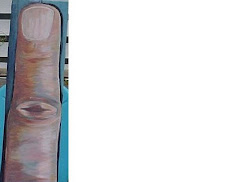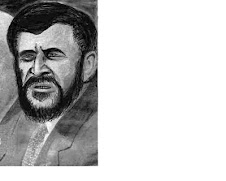Tuesday, September 11, 2012
1907: Financial Panic, 1914: The Great War; 2007: Financial Panic, 2014: ...
As the fumes from the Party conventions dissipate, leaving us with the certainty that no one knows what's going on, and that no one really cares to talk about the profound paucity of ideas, the realization dawns that, despite all the talk of the similarity of the current economic malaise to the Great Depression, the real similarity is to the less well-known, but even more devastating, Panic of 1907.
That destruction was so comprehensive, the pillaging of the economy by a handful of manipulative speculators on Wall St., dubbed robber barons, so complete, that in order to stave off future collapses of the entire country's financial system, the Federal Reserve was created and fractional reserve banking invented.
Now, according to the only other Republican presidential candidate, besides Romney, with any following, Ron Paul, we're to believe that the Fed, far from keeping us from financial ruin, has instead, via its policies of encouraging the very financial speculation it was originally instituted to prevent, is so intertwined with the interests of a small fraction of the population, known as Wall St., that Mr. Paul insists it should be, needs to be, abolished.
This prospect is so frightening, its implications so destabilizing, that it has relegated Mr. Paul to the backwaters of Party politics. Like all gold standard advocates, his messianic zeal for the barbaric relic leaves his financial acumen somewhat suspect. Like abolishing the US military, no matter how attractive a prospect that might be, doing so would crash the economy ... period. The fact that the economic engine that would rise Phoenix-like from the ashes to replace it, would arguably be healthier, more robust, and far less dangerous than one that's based on an arms sales for all-war, all-the-time system that inevitably ends up in the hands of well-connected financial elites, it appears abolishing the current one would indeed be advantageous. But because the entire economy is completely leveraged on the back of "defense", even a reduction in War spending would plunge the US, and therefore the entire world, economy, into an intractable deflationary depression as artificially-stoked demand plummets.
I would argue that abolishing the Fed would have the same result. Therefore, for the same reason, it too, will not happen.
Which brings us to the topic of this post, which is that, with all the wringing of hands about the end of the world being forecast for 12/21/2012, the much more auspicious date, to me, is August 2014.
Having previously believed that the New Millennium resembled the inter-war years of 1918-1939, I have come upon, usually by accident, several excellent books written about and during those times; not histories, but historical fictions such as Upton Sinclair's "World's End" series, or Richard Hughes' trilogy The Human Predicament (including "The Fox in the Attic", and "The Wooden Sheperdhess"), or Anne Nelson's "Red Orchestra", and Hans Fallada's "Every Man Dies Alone ". Despite that, I've subsequently come to the conclusion that Alexander Solzhenitsyn's "August 1914" more closely describes the factors that will plunge us into another orgy of destructive madness. For, as the title of Sinclair's series suggests, just as the flip answer to "Is there life after death?" is, "Yes. Just not yours", the coming cataclysm isn't an Armageddon-imagined End of The World, but just the end of Ours.
Some of the reasons I believe this are because we're so different, some because we're now the same as the Russians in terms of our attitudes and geopolitical position in the world, ie, because we're so similar. For an example of the first, on page 12 Solzhenitsyn declares, "There was only one accepted attitude towards war: that it was a sin". You can see how different we are now. War is no longer considered a sin, so that it is no longer considered evil. This means that now, trying to oppose evil people, "you can't fight them, because evil people always support one another; it is a source of their strength", as is a citizenry that can be convinced that War is a Cakewalk. "Evil, selfish men are more self-assertive than the good and loyal ones; it is always they who try hardest to show off their false loyalty and their pretended abilities" (p530). Something that is never more true than when the ultimate act of evil is simply considered another "option on the table".
"The moral double standard of war ended as though a twist of the knob on a pair of binoculars had abruptly brought the situation into proper focus: war was something that was waged by two different sets of uniforms - total war would have exceeded the bounds of common humanity" (p312). Now, of course, it's the only kind of War there is: Total War, Total Evil. Shock and Awe campaigns explicitly target the civilian populations, because we no longer feel bonds of common humanity, even with our fellow citizens; we're not allowed to: "There's no such thing as Society" as Margaret Thatcher so churlishly stated. There is only Me.
Always, we also tell ourselves, "the Lord sees that we have taken up arms not from martial ambition or for the sake of vain earthly glory but for a just cause - to defend the integrity and safety of our divinely protected Empire ... ", or whatever raison du jour we use to convince ourselves. Since, even as the strains of Empire threaten to dissolve our entire country, most of its denizens refuses to accept the fact that The US Empire even exists.
And whereas in WW1, the 1864 Geneva Convention on wounded stated that hospitals were to be regarded as neutral, that they would neither be fired upon nor captured, and were obliged to take in wounded from both sides; that hospital personnel enjoyed immunity and were at all times free to remain at their posts or to leave; that a private house which took in a wounded man was also afforded the protection of the Convention" (p393), one of the first targets in the invasion of Iraq were the hospitals. And anyone taking in an "insurgent" to tend their wounds was excoriated, along with their entire extended family. Even reporters were not safe. Indeed, if not embedded, were fair targets for elimination.
Now, how we are the same, is in the manner in which the populace is separated from those who make the actual decision to employ our "Warriors", so whereas the Russian people felt that: "they should have just said a Requiem mass for that Archduke Franz Ferdinand, after which the three emperors of Germany, Austria, and Russia could have drunk a glass of vodka at the wake and forgotten the whole affair" (p72), they were instead plunged into a debacle so cataclysmic it changed their world forever.
For if "the War Minister (or Commander-in-Chief) himself boasted that he had not read a single military textbook in the 35 years since he had left the university why should anyone else bother to exert himself? What was to be gained by a show of zeal? The ladder to success was so arranged as to encourage the ascent of slow-witted men who did what they were told, rather than those with brains and independence of mind. If you ever were to think for yourself or acted on your own initiative, then you would be forgiven not even your successes, and if you failed, you would be eaten alive" (p122).
And the fact that "Russia was inexhaustibly strong, even if she was governed by a pack of fools" (p128), does not make one more comfortable about the US's hegemony of military muscle. Because, "... only that closed fraternity of Gen Staff officers and perhaps a handful of engineers as well, were conscious of the fact that the world, and Russia with it, was moving invisibly, inaudibly, and imperceptibly into a new era; that the entire atmosphere of the planet - its oxygen content its rate of combustion, the mainspring pressure in all its clocks had somehow changed. All Russia, from the imperial family down to the revolutionaries naively thought that they were still breathing the same old air and living on familiar ground. Only a handful saw that the stars themselves had moved into a new conjunction" (p130), and that handful, because obedience is prized over intelligence, will remain relegated to the other side of the moat that protects the leaders from the citizens they represent.
But the most telling sign is the fact that the delusions of not one, but both sides seem to be part of the American psyche. So whereas we see the parallel to Germany in the fact that "the German army was the most powerful army in the modern world", the army it opposed was characterized by the statement: "Plan!?" There was something un-Russian about the word. What plan?" (p256). Scarily, BOTH of these apply to the modern US.
We saw this demonstrated in Iraq, where, "Crackling, the smoke and flames consumed the abandoned wealth, the now useless products of ingenuity and labor, and the fiery voices hissed and groaned. All was now lost, they said: chaos and hatred were come, and the old life was gone forever"(p352), yet, "our troops turned out to be not only oblivious of proletarian ideology but to lack even a spark of class consciousness. Even the most elementary economic slogans, calling forth changes that would be to their direct advantage, seemed incapable of penetrating their thick skulls. The stupidity and submissiveness of these men were enough to make anyone despair" (P383). "Men! Firm and decisive in war they might be, but in nothing else ... (p399), how well the army trained them in two years - and how surley it ruined them for the next twenty."
No. The almost innocent atmosphere in which the world strolled into WW1 is gone. Only the geopolitical and economic similarities are striking and foreboding. The ruling class, with a distinct distaste for the hoi polloi they lord over, don't realize that once "this is war, there's no way to shake oneself free of it" (p529). Instead they consider it a profit opportunity, and a possible boon to the economy. Separate from their countrymen, their fortunes safely stashed in foreign countries, and their chalets ensconced in what they believe to be safe global nooks, the current -day Ruling Class resembles that of the pre-WW1 Emperors more than they do the pre-WW2 rulers, who felt constrained by the sovereign state of which they were citizens. If anything they more closely resemble the infamous personage who's quoted as saying "L'Etat? C'est moi". What could possibly go wrong?
Subscribe to:
Post Comments (Atom)



















































No comments:
Post a Comment